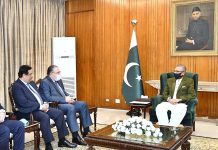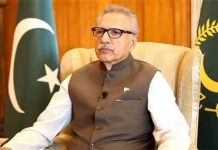SRINAGAR: At the ophthalmological ward of SMHS hospital, one looks straight into the eyes, but the eyes don’t look back for they have been blinded by pellets. With a murderous redness in them, they flutter between the short thick lashes like a bird whose wings have been clipped.
Firdous Ahmad, an auto driver, is silently praying on the hospital bed at ward 7 of SMHS hospital where sound and touch are the only senses that work, for the eyes are dead.
As soon as Firdous finishes his prayers, his friends who are guarding him to make sure that he doesn’t fall hand him his shades so that his eyes don’t catch infection.
The 26-year-old boy from Sopore is among the hundreds of victims who have been hit by pellets. His both eyes have been damaged and the cure rate is poor.
“There were protests going on in the locality, but I was home all day and went out to buy vegetables once I sensed that things are alright. But suddenly a police vehicle stopped right next to me and showered pellets at my face,” recalls Firdous.
The sole bread winner for the family had no inkling that his life was to change forever. “When I was shot I fell down. Then I don’t know who brought me here. When the doctors operated my eyes and I tried to open them I found myself in absolute darkness; it’s then that I realized the damage has been done.”
Firdous thought it might be the effect of surgery that the eyes didn’t respond for 24 hours, but when the darkness didn’t end even after a week, he silently mourned the death of his sight.
“I have been an independent person all my life. My father is sick and cannot work so I was earning a living for my parents and siblings. But today when I see my friends taking me to washroom, washing my face, making my bed and clothing me, it makes me sad. I don’t like this life of dependence,” says Firdous slapping his forehead with his hand.
“I had never thought that God has written blindness in my fate,” he says.
“I belong to a poor family. I don’t have many dreams. But the only dream I had was to make my younger sister a doctor. I was saving money for her further studies. But neither can I earn now, nor can she study,” Firdous adds.
His friends say he keeps repeating- ‘Who will earn for my family now’.
At least 174 people, who have been hit by pellets, have been admitted in SMHS hospital in last 16 days. Four people have lost their vision and around 10 to 12 have partially lost their vision.
Another pellet victim, Danish Rajab Jhat moves his gaze and fixes it at a place where from ears could easily hear the conversation of his interest.
He joins the conversation from a distance and says, “Blindness means being orphan because no matter how much you are being pampered by your family you cannot see the love in their eyes.”
Danish was proud of his green eyes and he would flaunt them around. “I have inherited these eyes from my mother. But now I cover them with dark goggles so that nobody sees them.”
The 24-year-old boy, who was a marketing agent, has lost vision in his left eye and has 10 percent vision left in his right one.
“When I sleep I see colorful dreams like I used to have earlier. This gives me a hope that I am still living in a colorful world, but then when I open my eyes, the darkness overwhelms me,” says Danish.
The reason behind Danish’s dark world is similar to that of many other people injured by government forces as they went on a rampage to quell the protests triggered by the killing of Hizbul Mujahedeen commander, Burhan Muzzafar Wani.
“I was out with the friends. Suddenly police came and started chasing us. We ran through lanes and by lanes, but a CRPF man caught me, unlocked the pellet gun and hit it straight into my eyes,” says Danish while searching for a glass of water.
Danish, who resides in Rainawari locality of Srinagar city, belongs to a poor family. His father is a laborer and elder brother is a driver.
“I don’t understand how my family is going to handle me. They cannot bear the expenses of my treatment. And I don’t want to be a burden on them,” he says.
Danish lost his mother two years ago and was slowly coming out of the trauma.
“I always used to cry and complain why God took my mother away from me. But today I thank God that my mother is not here to see her blind son. Some things happen for good.”
The doctors at SMHS hospital have lost hope about Danish’s vision, but Danish believes in miracles. “God has put me in this condition and he will take me out of this as well. I believe in miracles.”
The article originally appeared in Rising Kashmir.











